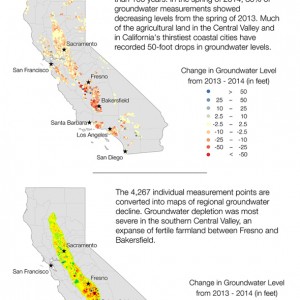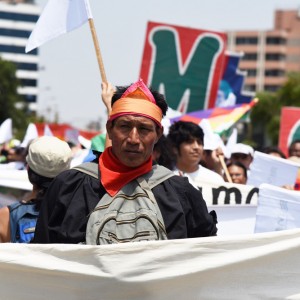The Stream, December 19: China Giving to West African Water Infrastructure
The Global Rundown |
A Chinese bank has loaned money to the Ivory Coast to improve water infrastructure in its capital, the Chinese government has loaned money to Mauritania for the same reason, and the Asian Development Bank is giving a loan to Pakistan to help irrigate its tribal areas. 6 tons of radioactive water have leaked into the ground from the Fukushima nuclear plant in Japan. Climate change could drastically decrease world food production, or not, depending on adaptation measures adopted. Chobani is making an effort to save more water at one of its Idaho facilities, and Iran believes it can save Lake Urmia.
“If you don’t carefully plan (where to spend resources), you will get adaptation wrong.” – David Leclere, one of the authors of a new study asserting that climate change could cause an 18 percent decrease in world food production by 2050. (Reuters)
By The Numbers |
$US 91 million Amount China’s Exim Bank is loaning to Ivory Coast to improve water infrastructure in Abidjan, where many residents do not have access to running water. Reuters
$US 34 million Size of a grant given to Mauritania by the Chinese Government for “economic and technical assistance” which will include a sanitation project for the capital. China also loaned Mauritania $US 17 million for the project, interest-free. Bloomberg
$US 42.9 million Amount the Asian Development Bank is loaning to Pakistan for an irrigation project in the Federally Administered Tribal Areas or FATA. Dawn.com
6 tons Amount of radioactive water leaked into the ground from Fukushima No. 1 nuclear power plant on Wednesday. Ironically, the leak occurred in the same day that South Korean experts were visiting to inspect the safety of Japanese fishery products. The Japan Times
Science, Studies, And Reports |
A study published on Thursday found that climate change could reduce world food production by 18 percent by the year 2050, the largest challenges being associated with water resource management. The study also found that, through correct planning and investment, it is possible that world food production could increase by 3 percent in that time period. Reuters
On The Radar |
One of Greek yogurt maker Chobani’s plants in south-central Idaho will reduce its water consumption by 20%. A new reverse-osmosis system will be used to recycle water from whey, a byproduct of the yogurt production process. KTVB
The Iranian government has announced that it has the ability to restore 50% of Lake Urmia’s area in the next 5 years. The salt lake has been shrinking since 1995, but Iran is confident that it can be restored through measures that include improved irrigation systems – it has allocated $US 522 million for restoration actions. Trend News Agency
is both a scientist and a journalist, she holds an MS in Environmental Engineering from Michigan Technological University, and she brings proficiency in ESRI’s ArcGIS mapping software.




Leave a Reply
Want to join the discussion?Feel free to contribute!